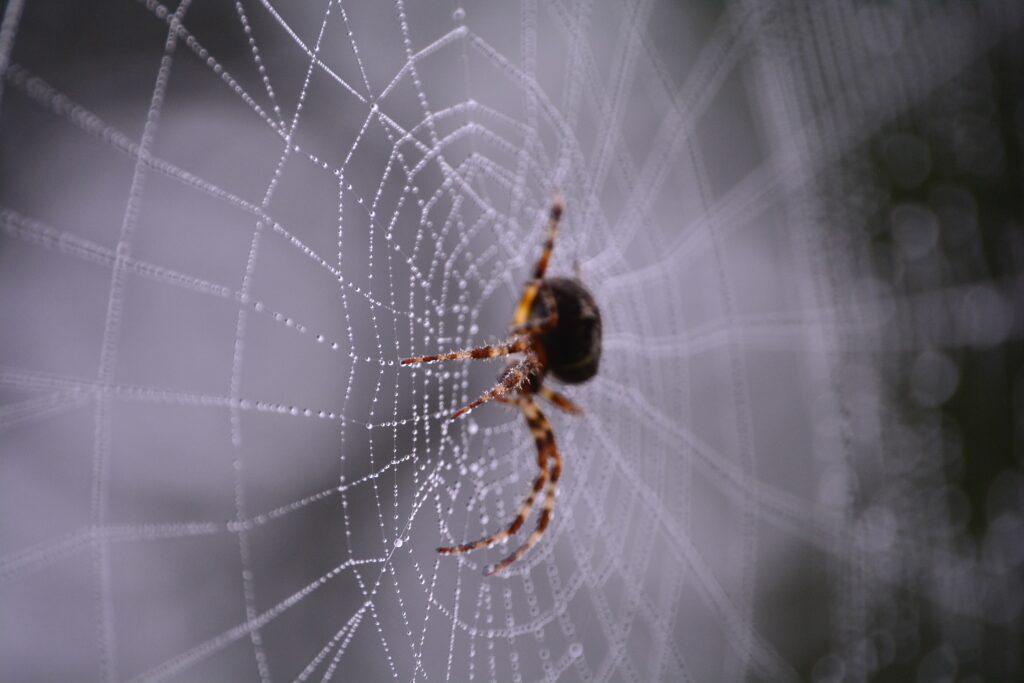Our staff at Basement Savvy is aware of the frustration caused by dealing with spiders in the basement. We are here to assist you in How to get rid of spiders in Basement, because we recognize that keeping your basement and family safe is a top priority. We’re here to share our expertise with you as a result of our team’s extensive training and experience in dealing with a variety of pests, including spiders.
In our opinion, the key to keeping spiders out of your basement is prevention. We advise routine maintenance and de-cluttering in order to lessen the likelihood of infestations. We do, however, have a variety of efficient solutions to help you get rid of spiders in the basement quickly and safely if you do find yourself dealing with an infestation.
Our team is committed to offering you the best guidance and assistance to enable you to achieve a spider-free basement. We can assist you whether you’re looking for all-natural treatments, expert pest control work, or preventative measures. You can be sure that there are no spiders or other pests in your basement by using our advice and techniques.
Therefore, do not be reluctant to contact Basement Savvy if you are having problems with spiders in your basement. Our team is here to assist you at every stage, from determining the type of spiders in your basement to giving you practical tips for permanently getting rid of them.
Identify the Type of Spiders in Your Basement
The first step in getting rid of the spiders in your basement is to determine what kind they are. There are several common types of spiders that are frequently discovered in basements, and each one must be removed using a unique strategy.


The cellar spider, also known as the daddy longlegs spider, is a common species of spider found in basements. These spiders create unkempt webs in corners and along walls and are frequently found in damp environments. Despite not being poisonous, they can be an annoyance when present in large numbers.
Another common type of spider found in basements is the wolf spider. These spiders are usually larger than other basement spiders, and they move quickly. They do not spin webs but instead hunt for their prey. Wolf spiders are usually harmless, but some species can deliver a painful bite.
Brown recluse spiders are also commonly found in basements. These spiders are known for their venomous bites, which can cause serious health problems. They are usually light brown with a distinctive violin-shaped mark on their backs.
To identify different types of spiders in your basement, it’s essential to take a close look at their physical characteristics. Look for details such as body shape, size, color, and markings. If you’re having difficulty identifying a spider, there are resources online or from pest control experts that can help you identify the species.
Once you’ve identified the type of spider in your basement, you can choose the best method for removal. Some types of spiders can be safely removed using natural remedies, while others may require the assistance of a pest control professional. Regardless of the type of spider, identifying it correctly is a crucial step in getting rid of them for good.
Reduce Clutter and Remove Hiding Spots
The two main things that draw spiders to basements are clutter and hiding places. You can make your basement less inviting to spiders and lessen the likelihood of an infestation by getting rid of clutter and hiding places.
Spiders enjoy clutter because it offers them a lot of hiding places and a consistent stream of prey. Clutter that can draw spiders includes cardboard boxes, heaps of clothing, and old newspapers. Start by going through your belongings and getting rid of anything you no longer need in order to declutter your basement. To get rid of unwanted items, think about donating them if they’re still in good condition or holding a yard sale.
Once you’ve reduced clutter, it’s essential to organize your basement to make it less hospitable to spiders. Store items in sealed plastic containers, which will help prevent spiders from making their homes inside boxes or clothing. Vacuum regularly to remove cobwebs and spider eggs, paying close attention to corners, ceilings, and baseboards.
In addition to reducing clutter, removing hiding spots is another effective way to keep spiders out of your basement. Spiders love to hide in dark, quiet places, so sealing cracks and gaps in walls, floors, and ceilings can help reduce their hiding spots. Use caulk or foam to seal any gaps around pipes, vents, or other entry points.
Removing excess moisture is also important since damp environments attract spiders. Use a dehumidifier to keep your basement dry, and fix any leaky pipes or faucets promptly.
By reducing clutter and removing hiding spots, you can make your basement a less hospitable environment for spiders. This, in turn, will reduce the likelihood of an infestation and make it easier to get rid of any spiders that do find their way into your home.
Seal Up Entry Points
Spiders can enter basements through a variety of entry points, including cracks in walls or floors, gaps around windows or doors, and openings around utility lines or pipes. Sealing up these entry points is an important step in preventing spiders from entering your basement.
To begin, inspect your basement for any gaps or openings that spiders could use to enter. Look for gaps around windows or doors, holes in walls or ceilings, and gaps around pipes or utility lines. Use caulk or foam to seal any gaps or cracks you find, paying close attention to areas around pipes or vents.
It’s also a good idea to install weatherstripping around doors and windows to prevent spiders from entering through gaps. If you have a basement window that you like to keep open, consider installing a window screen to keep spiders out.
Another common entry point for spiders is through the foundation. If you have a crawl space or basement with a dirt floor, consider sealing the area with a vapor barrier. This will help prevent moisture from entering your basement and provide a barrier to keep spiders out.
In addition to sealing up entry points, it’s important to keep your basement clean and free of debris. Regularly vacuuming and dusting your basement will help prevent spiders from making their homes in your home.
By sealing up entry points, you can help prevent spiders from entering your basement and reduce the likelihood of an infestation. This is a crucial step in any spider prevention plan and can make a significant difference in the number of spiders you see in your home.
Use Spider Repellents
In addition to sealing up entry points, using spider repellents can be an effective way to keep spiders out of your basement. There are a variety of natural spider repellents that you can use, as well as chemical options.
Natural spider repellents typically work by emitting a scent or flavor that spiders find unappealing. Some common natural spider repellents include vinegar, peppermint oil, citrus, and cedar. To use these repellents, you can mix them with water and spray them in areas where spiders are likely to be found. You can also soak cotton balls in the repellent and place them in areas where spiders are likely to hide.
If you prefer, you can also make your own natural spider repellent using ingredients you may already have in your home. For example, you can mix vinegar, water, and a few drops of essential oil to create a natural spider repellent spray.
Chemical spider repellents are also available and can be effective at keeping spiders out of your basement. These repellents typically contain chemicals like pyrethroids or pyrethrins, which are toxic to spiders. However, it’s important to use these repellents with caution, as they can also be harmful to humans and pets.
If you choose to use a chemical spider repellent, be sure to follow the instructions carefully and keep the area well-ventilated. You should also keep the repellent out of reach of children and pets.
Overall, using spider repellents can be an effective way to keep spiders out of your basement. Whether you choose a natural or chemical repellent, be sure to use it safely and according to the instructions. With regular use, you should be able to significantly reduce the number of spiders in your basement.
Call in a Professional
If you have a serious spider infestation in your basement, you may want to consider calling in a professional pest control service. A professional can help you identify the type of spider that is infesting your basement and recommend the most effective course of action.
Some signs that you may need to call in a professional include a large number of spiders in your basement, the presence of spider egg sacs, or the appearance of spider bites on you or your family members.
When you call in a professional, they will typically perform a thorough inspection of your basement to identify the source of the spider infestation. They may also use specialized tools to treat cracks and crevices where spiders may be hiding.
There are a variety of professional pest control services available for dealing with spider infestations. One common option is insecticide sprays, which are applied to areas where spiders are likely to be found. Another option is glue traps, which can be placed in areas where spiders are known to hide.
If you have a serious spider infestation, a professional may recommend a more intensive treatment, such as fumigation. This involves sealing off your basement and using chemicals to kill any spiders or other pests that may be present.
Overall, if you are dealing with a serious spider infestation in your basement, it may be best to call in a professional pest control service. They can help you identify the source of the infestation and recommend the most effective course of action to eliminate the spiders and prevent them from returning.
Prevention Tips for Spiders in Basement : How to keep basement spider free?
To keep your basement spider-free, you need to take some preventative measures. Spiders are attracted to dark and dusty areas, so it’s important to keep your basement clean and tidy. Prevention is key when it comes to keeping spiders out of your basement. Here are some tips for preventing spiders from entering your basement and keeping it spider-free:
- Seal up entry points: As mentioned earlier, spiders can enter your basement through cracks and crevices in the walls, floor, and ceiling. Seal up any entry points to prevent spiders from entering your basement.
- Reduce clutter: Spiders love clutter because it provides them with hiding spots. Keep your basement tidy and free of clutter to reduce the likelihood of spiders taking up residence.
- Remove spider webs: Regularly remove spider webs from your basement to discourage spiders from building new webs.
- Use spider repellents: Natural spider repellents, such as essential oils or vinegar, can be effective at repelling spiders. You can also make your own spider repellent by mixing water and peppermint oil in a spray bottle.
- Use a dehumidifier: Spiders are attracted to damp environments, so using a dehumidifier to keep your basement dry can help discourage them from taking up residence.
- Regularly inspect your basement: Regularly inspect your basement for signs of spider activity, such as webs or egg sacs, and take action immediately if you spot any.
By following these prevention tips and regularly maintaining your basement, you can keep spiders out and ensure a spider-free environment.
FAQs
You may notice an increase in spider webs, egg sacs, and live spiders in your basement. It’s also possible to see other signs of infestation such as bite marks, shed skins, or droppings.
There are several natural spider repellents such as peppermint oil, vinegar, and citrus that are safe to use in the basement. Chemical repellents such as sprays and traps can also be effective, but it’s important to read and follow the instructions carefully.
Start by inspecting the perimeter of your basement and sealing any cracks or gaps with caulking or weather stripping. Make sure all windows and doors are properly sealed as well. For larger openings, consider using steel wool or wire mesh.
Yes, there are several natural methods for getting rid of spiders such as using essential oils, diatomaceous earth, or sticky traps. However, it may take longer and require more effort to see results compared to using chemical solutions.
It’s recommended to inspect your basement at least once a month, especially during the warmer months when spider activity is higher. Regular inspections can help you catch potential problems early and prevent them from becoming larger issues.
Conclusion
At Basement Savvy, we understand the frustration and discomfort that comes with having spiders in your basement. Luckily, there are several effective ways to get rid of spiders and prevent them from coming back.
First, identify the type of spiders in your basement to determine the best course of action. Then, reduce clutter and remove hiding spots to make your basement less attractive to spiders. Seal up entry points to prevent spiders from entering, and use spider repellents to keep them at bay. If all else fails, don’t hesitate to call in a professional pest control service.
Finally, it’s important to take preventative measures to keep spiders out of your basement in the future. Regularly inspect your basement, remove spider webs, and use a dehumidifier to keep your basement dry.
By following these tips, you can get rid of spiders in your basement and keep them from returning. At Basement Savvy, we are committed to helping our customers maintain a clean, safe, and spider-free basement.
Image Credits @ Pixabay

